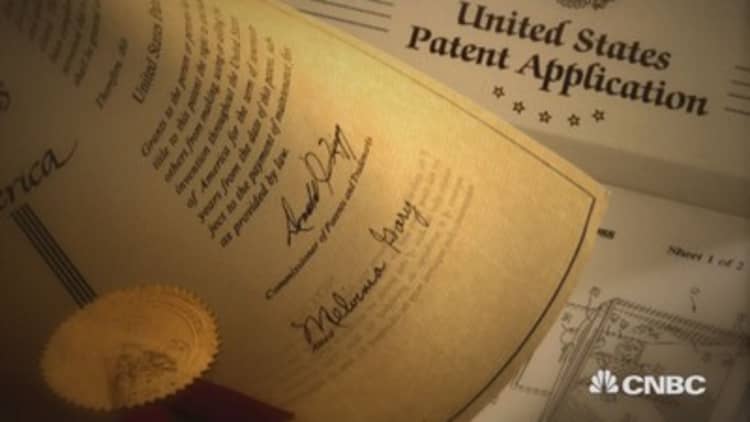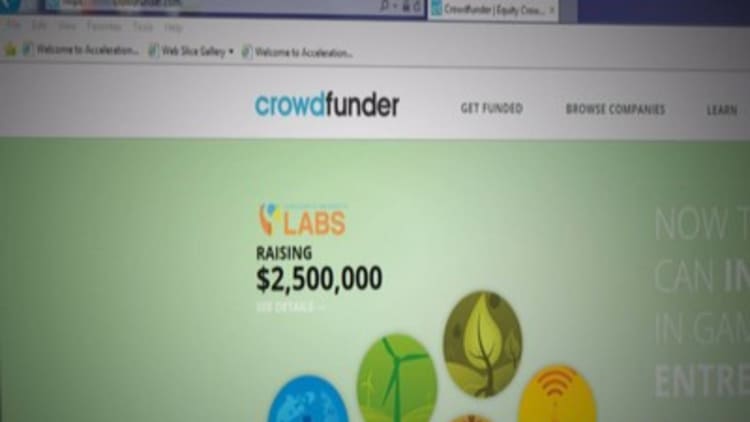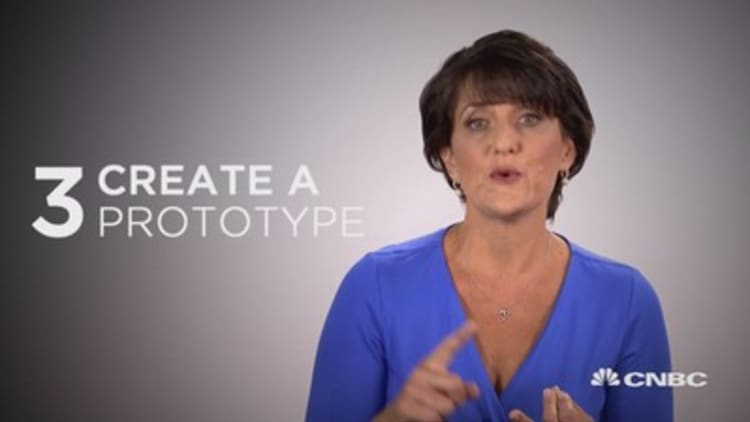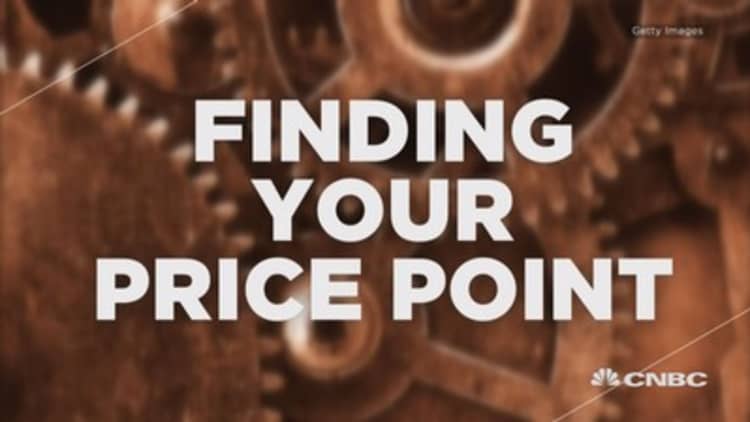



You've just invented the greatest product known to mankind—or at least you think so. And you know that you must quickly protect this brilliant idea with a patent because someone will surely steal it if you don't, right?
Maybe not. For lone inventors, patenting may not be necessary at every step of the inventing process—and maybe not at all.
"A patent can be a useful tool, but it may not be necessary. I have spent thousands of dollars on quality patents and had my products knocked off anyway," said Tamara Monosoff, inventor and author of "The Mom Inventors Handbook."
Monosoff breaks down the patent debate into three key questions for inventors as they weigh the benefits of a patent vs. the costs—something all inventors need to do early in the product development process.
1. Is a provisional patent application plenty?
A provisional patent application is like an invention placeholder—it gives you 12 months to file a full patent, known in the inventing jargon as a utility patent. The utility patent reverts to the date of your provisional patent application.
There's an economic benefit to this approach—you can delay the cost of a utility application and continue with product development before you actually file. Fees associated with filing a provisional patent application can start at as little as $65, though there can be multiple fees in the filing process.
A full utility patent can cost thousands of dollars, depending on the size of the applicant, the nature of the invention (apparatus, biotech, electrical, design, plant) and the process hiccups that can occur along the way as the patent application is examined, said James Crowne, deputy executive director of legal affairs for the American Intellectual Property Law Association. He added that the applicant does have the chance to make corrections to the filing during the examination process, but there are costs incurred every time that is necessary.
Another benefit of the provisional application is that your product details are not public for the 12-month period, so potential competitors can't figure out how to design around your patent.
"It's a powerful time because no one knows the specifics of what you submitted for patent, and once you file a provisional application, you can also label your invention as 'patent pending,' which in itself can be a deterrent to a would-be knockoff," Monosoff said.
The big caveat: A provisional patent application is not to be confused for an actual patent and will ultimately offer no protection unless a utility patent application is filed and granted. And if a full patent application isn't filed within 12 months of the initial filing, the provisional patent application will lapse and the inventor loses all claims to that filing date.
"It is an inexpensive device that will buy you 12 months of time before you have to officially file a utility patent," Monosoff said.
She said that the cost/benefit analysis can often come down on the side of skipping the patent.
"I have used provisional patent applications with numerous products, but I have found that the investment in utility applications was not worth the investment for my products and have preferred investing the money on brand awareness and the products themselves," Monosoff said.
2. Do you know the difference between patenting a product and patenting a product "aspect?" If not, you should.
If you decide to pay for a utility patent, it's important to understand that they typically aren't granted on a product per se, but rather on some aspect of the product. For example, the way it latches, the chemical composition, the algorithm. Unless an aspect that can be patented is the component that makes your product unique, then the actual legal protection granted with a patent may be of questionable value.
Monosoff said inventors have to ask themselves if there is an element of the product that is truly unique and critical to the value of the product itself.
Read More3 big mistakes millionaire inventors don't make
Monosoff said a patent can be of tremendous value during the critical first 20 years of a product's life—that's the full term of a patent granted by the United States Patent and Trademark Office. And if the goal is to license an invention, as opposed to taking it to market yourself, a utility patent is probably necessary, Monosoff said. This is because larger companies won't license a product that's not patent pending or patented. "This is an asset in their eyes. Big companies have competitors, too, and need to have a head start or advantage over their competition," she explained.
Unless the patentable aspects are critical to your invention, Monosoff argues that an inventor is better off investing time and money in developing, launching and marketing the invention.
A patent can be a useful tool, but it may not be necessary. I have spent thousands of dollars on quality patents and had my products knocked off anyway.Tamara Monosoffinventor and author of "The Mom Inventors Handbook"
3. True or false? Once granted, a utility patent cannot be challenged.
False. Being granted a patent does not mean an inventor is free of worry from legal challenges. Patent protection is limited to the extent that the inventor, or their attorney, is willing to enforce it.
"Even with a quality patent, there is the possibility that someone will create a knockoff version that infringes on your patent," Monosoff said. "There is no 'patent police' to call."
Inventors may need to defend a patent, spending time and money on legal fees. And if the patent challenge comes from a large, deep-pocketed company, an inventor may find a patent defense unable to sustain.
Whatever approach an inventor pursues, Monosoff advises legal counsel before making a final decision that could affect a product's future and the inventor's personal finances. Legal counsel can help specifically to determine whether there is a unique aspect of the product to patent and help avoid procedural pitfalls through the patent process.
Tune in to CNBC's new series,"Make Me a Millionaire Inventor," on Wednesday nights at 10 p.m. ET/PT.

